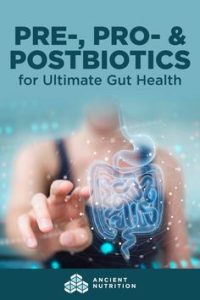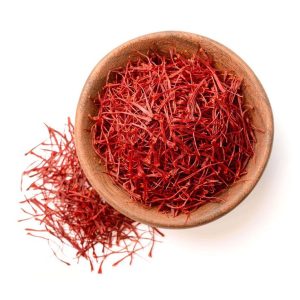In the past year, emotional issues have become the second most prevalent health concern, triggering a cascade of related problems such as skin issues, sleep disturbances, and hair loss. The escalating worry about these health issues underscores the profound impact of negative emotions on overall well-being. According to EuroMonitor International, the global compound annual growth rate of dietary supplements from 2017 to 2022 was 5.1%, with a significant focus on emotional health (11.5%).
The societal pressures and stressors contributing to the phenomenon of “burnout” have compelled younger generations to prioritize self-care. A study by Ipsos on “Post-90s Well-being” reveals that emotional health (26%), body management (22%), and sleep improvement (14%) are the top three health priorities among individuals born after 1990. As contemporary consumers grapple with multiple stressors, emotional fluctuations and heightened anxiety have become prevalent.
The burgeoning demand for mental and psychological well-being has fueled the rapid growth of the emotional support sector. The online trend “emo” has gained popularity, with young individuals often using the term to express feelings of sadness, melancholy, and depression. How can functional foods contribute to enhancing emotional well-being?
1. Probiotics for Gut-Brain Harmony

The gut-brain axis serves as a bidirectional communication system between the gastrointestinal tract and the central nervous system. The vagus nerve plays a pivotal role in this communication, and the gut microbiota not only aids in digestion but also produces various neurotransmitters such as serotonin and dopamine. These neurotransmitters profoundly influence emotions, cognition, and overall brain health. Serotonin regulates mood, appetite, and sleep, while dopamine is associated with pleasure and reward.
The superior human-adapted bifidobacterium, M-63, has shown promising results in a clinical study. Participants with irritable bowel syndrome (IBS) due to a major flood disaster experienced significant improvements in mental health and gut microbiota balance after consuming probiotic powder containing 1 billion M-63 daily. This study suggests that M-63 could potentially contribute to improving mental health in adults.
Other probiotics beneficial for emotional health include the combination of long bifidobacterium R0175 and Swiss lactobacillus R0052, known as the “psychobiotic CP,” approved by the Canadian Health Department in 2016 for improving mood and symptoms of anxiety. Additionally, Lactobacillus HN001 has been shown to alleviate postpartum depression and anxiety in women.
2. Active Peptides for Stress Relief
Ingredia introduces Lactium®, a whey protein hydrolysate containing bioactive peptide “decapeptide” or α-casozepine, renowned for its soothing and mood-relaxing effects. Lactium® helps alleviate stress, improving symptoms such as anxiety, sleep disorders, and disruptions in eating habits. Approved by the Chinese Ministry of Health as a common food ingredient with no restrictions on population or usage, Lactium® acts on the brain’s GABA mechanism, the main inhibitory neurotransmitter in the central nervous system.
3. Saffron Extract for Emotional Balance
Plant therapy has explored alternatives for emotional disorders and depression, with saffron emerging as a potential candidate. Saffron’s bioactive compounds, crocin, and safranal, contribute to its aroma and distinctive red color. Studies suggest that antioxidants in saffron extract may prevent oxidative stress in the central nervous system, offering a potential mechanism for therapeutic effects. Research indicates that daily intake of 30mg saffron extract significantly improves symptoms of anxiety compared to a placebo group, with positive effects on mild to moderate depression.

4. L-Theanine for Neurological Support

L-Theanine, experiencing a robust 102% compound growth rate in the past five years, is a dietary supplement ingredient gaining popularity. Known to rapidly cross the blood-brain barrier, L-Theanine elevates levels of serotonin, gamma-aminobutyric acid (GABA), and dopamine in the brain. Long-term consumption may offer general neuroprotective effects, potentially linked to increased synthesis of brain-derived neurotrophic factor (BDNF) in the hippocampus. Numerous controlled trials indicate L-Theanine’s promising role in anxiety reduction.
In today’s diverse and personalized consumer era, emotional health has become increasingly vital. For businesses, capturing consumer emotions and developing innovative products for targeted emotional well-being are crucial. However, success in the emotional health industry requires not only market positioning but also effective market education and industry guidance to ensure sustainable growth. Consumers seek health, not just gimmicks.
Reference:
[1] Somuah-Asante, S.; Sakamoto, K. Stress buffering and longevity effects of amber extract on Caenorhabditis elegans (C. elegans).Molecules 2022, 27, 3858.
[2] Luo, Y.; Zhou, S.; Haeiwa, H.; Takeda, R.; Okazaki, K.; Sekita, M.; Yamamoto, T.; Yamano, M.; Sakamoto, K. Role of amber extract in protecting SHSY5Y cells against amyloid β1-42-induced neurotoxicity. Biomed. Pharmacother. 2021, 141, 111804.
[3] Tian, Y.; Zhou, S.; Takeda, R.; Okazaki, K.; Sekita, M.; Sakamoto, K. Anti-inflammatory activities of amber extract in lipopolysaccharide-induced RAW 264.7 macrophages. Biomed. Pharmacother. 2021, 141, 111854.
[4] Ma, Z.F., Yusof, N., Hamid, N., Lawenko, R.M., Mohammad, W.W., Liong, M.T., Sugahara, H., Odamaki, T., Xiao, J. and Lee, Y.Y., 2019. Bifidobacterium infantis M-63 improves mental health in victims with irritable bowel syndrome developed after a major flood disaster. Beneficial microbes, 10(2), pp.111-120.



